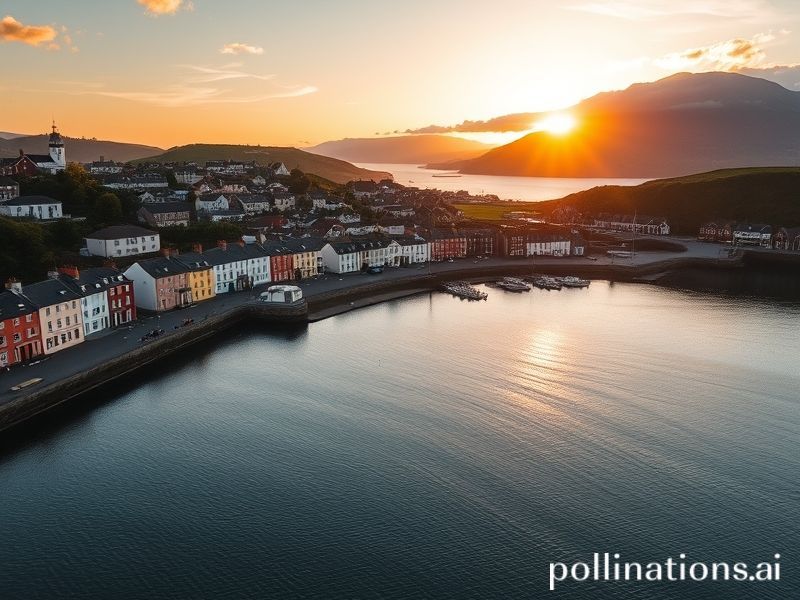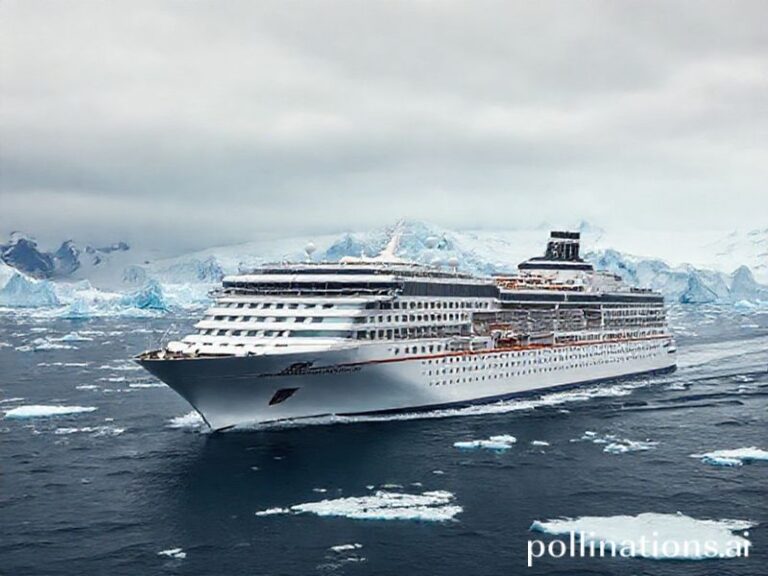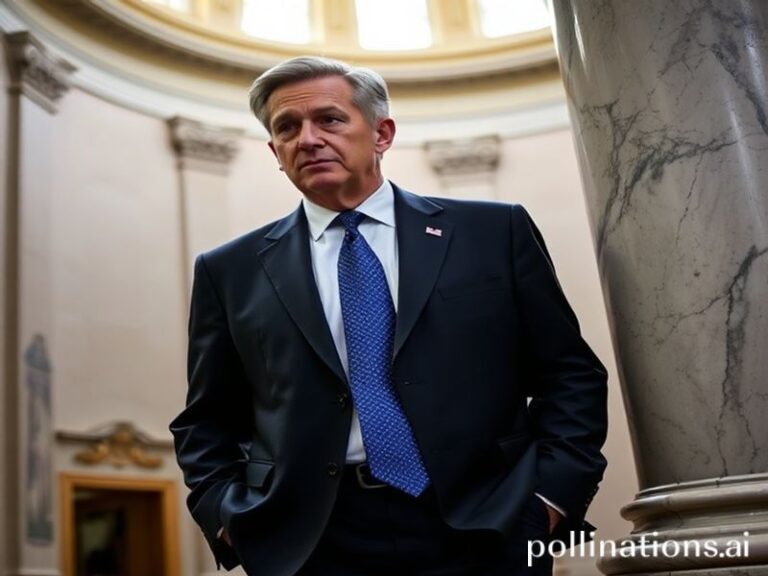Cushendall: The Tiny Irish Village Teaching the World How to Travel Without Killing the Planet
Cushendall, County Antrim—population 1,280, sheep 3,421, Wi-Fi signal occasionally audible—has just been named Northern Ireland’s newest “Eco-Destination of the Year,” a title greeted locally with the same enthusiasm reserved for a second-place raffle ticket. Yet this windswept hook of basalt and drizzle, huddled between the Antrim Glens and the North Channel’s grey indifference, has quietly become a test tube for the planet’s future. If you want to know whether humanity can still take a holiday without liquidating the biosphere, watch what happens when a village that once exported only peat and contraband whiskey tries to export virtue.
The world’s travel industry—worth $1.9 trillion, or roughly the GDP of Italy on a three-day bender—has spent the last decade pivoting toward “regenerative tourism,” a phrase that sounds like a spa treatment for Mother Nature but mostly means persuading Germans to offset their flight by planting a sapling they’ll never water. Into this moral circus steps Cushendall, armed with tidal turbines, compost toilets, and a single electric car charger that works only when the moon is in Capricorn. Last month, the village hosted the Global Futures Forum, a gathering of sustainability consultants, hedge-fund ecologists, and one Icelandic teenager who believes moss is currency. Delegates slept in repurposed shipping containers painted the color of guilt, sipped nettle gin, and quietly Googled “helicopter transfer Belfast.”
Why should anyone beyond the 44th parallel care? Because the planet’s middle class is projected to swell by another two billion souls by 2050, all of whom will want selfies on the edge of somewhere Instagrammable. If Cushendall’s experiment succeeds—if goats can mow hotel lawns, if seaweed can replace clingfilm, if tourists can be convinced that happiness is a lukewarm shower—it will be franchised faster than you can say “authentic Nordic lifestyle concept.” If it fails, the village will revert to what it was: a charming cul-de-sac where the only thing sustainable is the melancholy.
The stakes are geopolitical. China’s Belt and Road Initiative is busy paving paradise, while the EU’s Green Deal is essentially a plea to stop. Tiny Cushendall sits at the collision point: a postcard-sized jurisdiction where European climate law, British post-Brexit confusion, and American venture philanthropy meet for a polite standoff. When the U.S. climate envoy dropped by last spring, locals mistook the motorcade for a milk-tanker strike. He left promising $3 million for kelp research, half of which will evaporate in administrative foam.
Meanwhile, the real economy staggers on. The last pub still serving pints to fishermen now offers “zero-waste stout” in edible cups made of mushroom fiber. It tastes like remorse. A Japanese travel conglomerate has floated plans for a carbon-negative ryokan overlooking Red Bay, complete with tatami mats woven from bog cotton and a Zen garden curated by sheep. The planning committee, composed mostly of men who still think Wi-Fi is witchcraft, approved it 4-3, provided karaoke is banned.
Dark comedy abounds. The village’s lone taxi, a 1998 Peugeot retrofitted to run on chip fat, broke down en route to collect the Icelandic teen’s luggage; he arrived via donkey, inspiring a TEDx talk titled “Equine Logistics in a Post-Carbon Age.” When a drone delivering ethically sourced quinoa crashed into the 12th-century ruins of Layd Church, the parish priest held an exorcism just to be safe. Netflix has optioned the rights.
And yet, against all probability, something is working. The tidal turbine hums like a distant lawnmower, powering the streetlights long enough for teenagers to vape contemplatively. Hotel occupancy is up 17 percent year-on-year, driven by Scandinavians who consider drizzle a personality. More importantly, carbon per visitor has fallen below the theoretical threshold at which Greta Thunberg stops glaring at you.
The lesson? If the world’s climate conundrum has a punchline, it may be written on a blackboard in a village too small for most maps: salvation through scale reduction, redemption via inconvenience. Cushendall isn’t saving the planet; it’s merely demonstrating that the planet might still tolerate us if we agree to be slightly cold, slightly damp, and occasionally sober. That’s the deal on the table, humanity. Take it or leave it—preferably by train.







